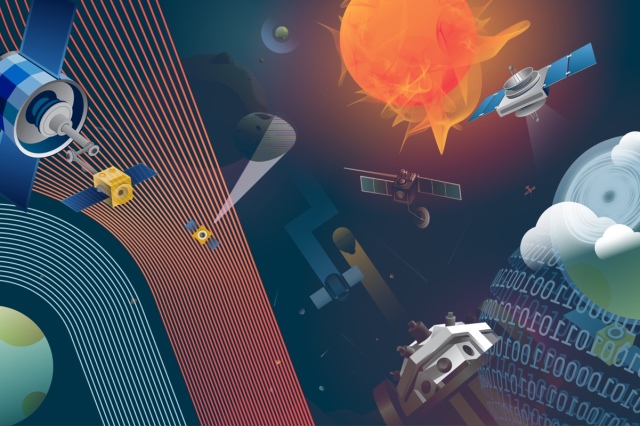The ESA member countries have signed a manifesto calling for the development of the European manned program and the acceleration of sending a probe to the Saturn system.
A meeting of the ministers of the 22 member countries of the European Space Agency (ESA), headed by its head Josef Aschbacher, was held in Portuguese Matosinhos. As a result of the discussions, a common manifesto was signed, which calls on the European Union to step up efforts to work in space and indicates key areas for it. This is reported by the pan-European news agency EURACTIV.
The "Matosinhos Manifesto" (Matosinhos Manifesto) is aimed at "accelerating the use of space capabilities to solve the most important problems of our time— - as observers have noticed, the word "accelerate" appears as many as 16 times on four pages of the document. The principles set out in the manifesto can be the basis for discussing the ESA budget. It is not accepted annually, but every few years, and the next hearing should be held in November 2022.
The first priority in the manifesto is the collection and use of satellite data to track climate change and find ways to contain it. The key goal of this direction is called the creation of a "digital copy" of the Earth - a global model that will significantly improve the prediction of climate and natural disasters. At the same time, it is recommended to pay special attention to the protection of the orbiters themselves — from space debris, as well as from the " space weather " associated with the activity of the Sun.
The second key direction, according to the authors of the document, should be the development of its own manned program. Since 2003, three countries - Russia, the United States and China - have been able to carry out such flights, and India may soon join them. The Europeans tried to develop their Hermes manned spacecraft at the turn of 1980-1990, but due to problems with financing, the work was stopped. Now ESA intends to have to return, if not to the Hermes project itself, then to the same, and unresolved, tasks.
Finally, the Matosinyush Manifesto considers the program of space missions to study the satellites of the gas giants of the Solar system to be a priority. These are extremely diverse worlds - from Saturn's moon Titan with its liquid seas of hydrocarbons to Jupiter's moon Europa, which hides an ocean of water under its icy crust. Many of them are considered the most promising for the search for extraterrestrial life.
To study them, ESA is implementing the Voyage 2050 program with launches after 2035. However, the manifesto recommends speeding up this work, as well as considering the possibility of conducting a mission with the delivery of samples to Earth. Most likely, the target for such a flight will be Enceladus, a satellite of Saturn, studied by the joint European-American Cassini probe. It is considered one of the most likely candidates for habitability.

